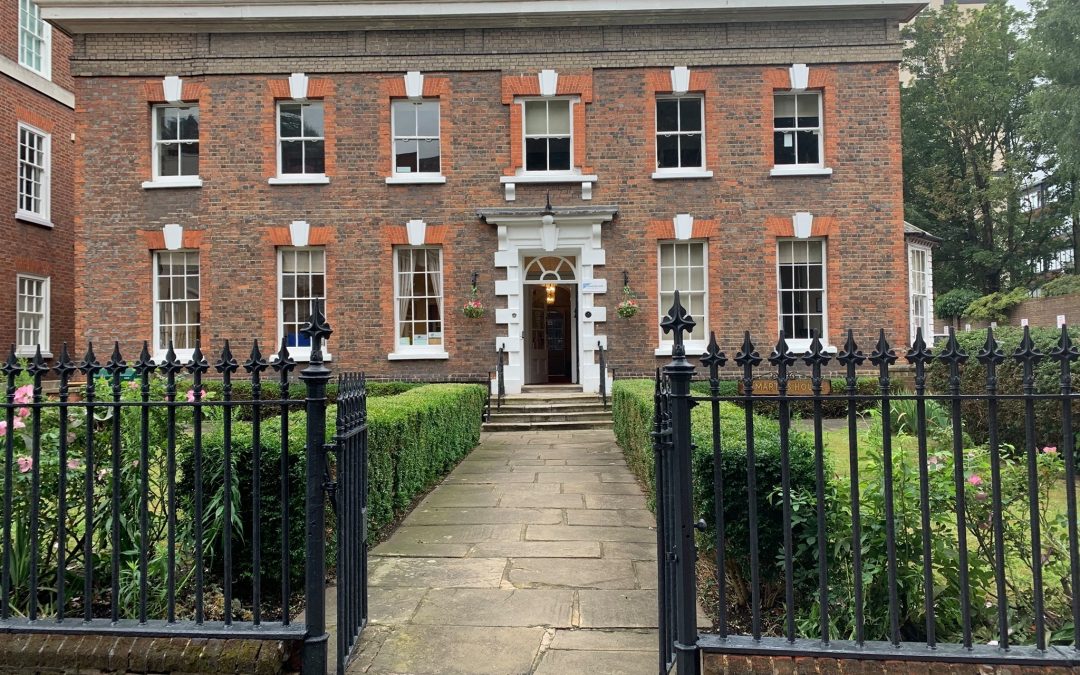
The history of GoodyBurrett
History and Heritage of GoodyBurrett
People regularly ask for an indication of the date when GoodyBurrett was founded and whilst we have rooms and chests full of historical documentation stretching back to the 5thMarch 1650, being specific about the start of the firm has proved more challenging. From the 1650’s and into the 1750’s lawyers tended to wear a number of hats and were heavily involved in politics, municipal appointments, charitable boards and religious affairs of the town. The leading lawyers with GoodyBurrett were no exception. We tend to use Francis Smythies the elder to provide the most specific apostolic descent but given the plethora of papers deeds and documents that precede Smythies we believe we could be much older. We had believed the firm started with Jeremiah Daniel JP who practised between 1710 and 1760 and later, two of his sons, Samuel Daniel and Peter Daniel who were involved with his firm. We have documentary evidence that Samuel Daniel was appointed as Agent for the Sun Insurance Company on 1stApril 1737 However, Francis Smythies was a high Tory and eventual leader of the Conservative Party in Colchester and Peter Daniel was a Lion Walk Liberal and most of his Clients were non-conformists. We further understand that Peter Daniel went bankrupt in 1783 and 1789 and therefore it is unthinkable that he would have been a partner of Francis Smythies. We have a mortgage document on our wall prepared by Francis Smythies dated 23rdSep 1785. The relationship between Samuel Daniel and Francis Smythies may have been forged through Daniel Sutton’s decent but he did not join with Smythies until 1798
Smythies began his Articles with Samuel Enau in 1760 paying the considerable sum of £160 for this privilege, whereas the usual fee at the time was approximately £20. We have been advised that the large sum was paid with an understanding that Smythies was in effect a trainee and would in due course become a Partner. Smythies was the son of the distinguished Palmer Smythies, Head of the Colchester Royal Grammar School and came from higher social standing than the usual trainee. Samuel Enau was also no small-town lawyer, but a leading Colchester and Essex figure as he was Clerk to the Peace, Town Clerk of Colchester and backed by the all-powerful Rebow family. Smythies did not outlive Enau long, dying in 1798 but from 1797 he took on Daniel Sutton, son of Daniel Sutton, the distinguished pioneer of Smallpox inoculation (who deserves to be better known than Edward Jenner).
On Smythies’ death Sutton went into partnership with Thomas Hedge, the son of a distinguished watchmaker until 1804 when he went to Tasmania where his daughter married the Premier of New South Wales, Sir Charles Culper. Smythies’ business was continued by his son, Francis Smythies II, and later his son Francis Smythies III . He took into partnership Henry Sidney Goody. By 1835 the firm was called Smythies Goody & Goody as Henry Sidney Goody was joined by his son Clifford Goody. Two other Goodys, Neville Goody and Sidney Goody also joined the firm in the late 1800’s.
In 1904 the firm was joined by Francis Herbert Wetherall and changed its name to Goody Son & Wetherall. Francis Smythies III had died on the 18thMay 1888. On 1stAugust 1911 Henry Goody Junior became a Partner and the firm occupied 62 North Hill, Colchester. On the 24thJuly 1914 the Solicitors of Colchester played the Auctioneers and Valuers at a cricket match at Castle Park. The photograph still sits proudly on our reception wall.
Since 1924 there have been fourteen Partners. Albert Bentley Joined The partnership in 1944 with Neville Goody and the firm changed its name once again to Goody Bentley. Albert was joined by his son Bernard in 1953. In 1971 When Albert retired John Metcalf Jones became a partner and in 1995 following the death of Bernard Bentley, John moved from 62 North Hill to 12 St Peter’s Court and the firm was renamed Goodys. We were too small for St Peters Court and so in 2005 we moved to St Martin’s House our current building, In 2007 we merged with Budd Martin Burrett and formed an Limited Liability Partnership GoodyBurrett LLP
St Martin’s House was built in 1733 for Dr Richard Daniel who hails from the same family as Jeremiah Daniel, Sam Daniel and Peter Daniel and therefore we believe we have now returned to the family home, albeit some 280 years later. So how old are we….well maybe 1stApril 1737 at least, but we are working on it……282 years….
If GoodyBurrett can help with any of your legal needs
Please contact us on 01206 577676 or email [email protected]



